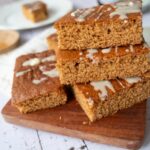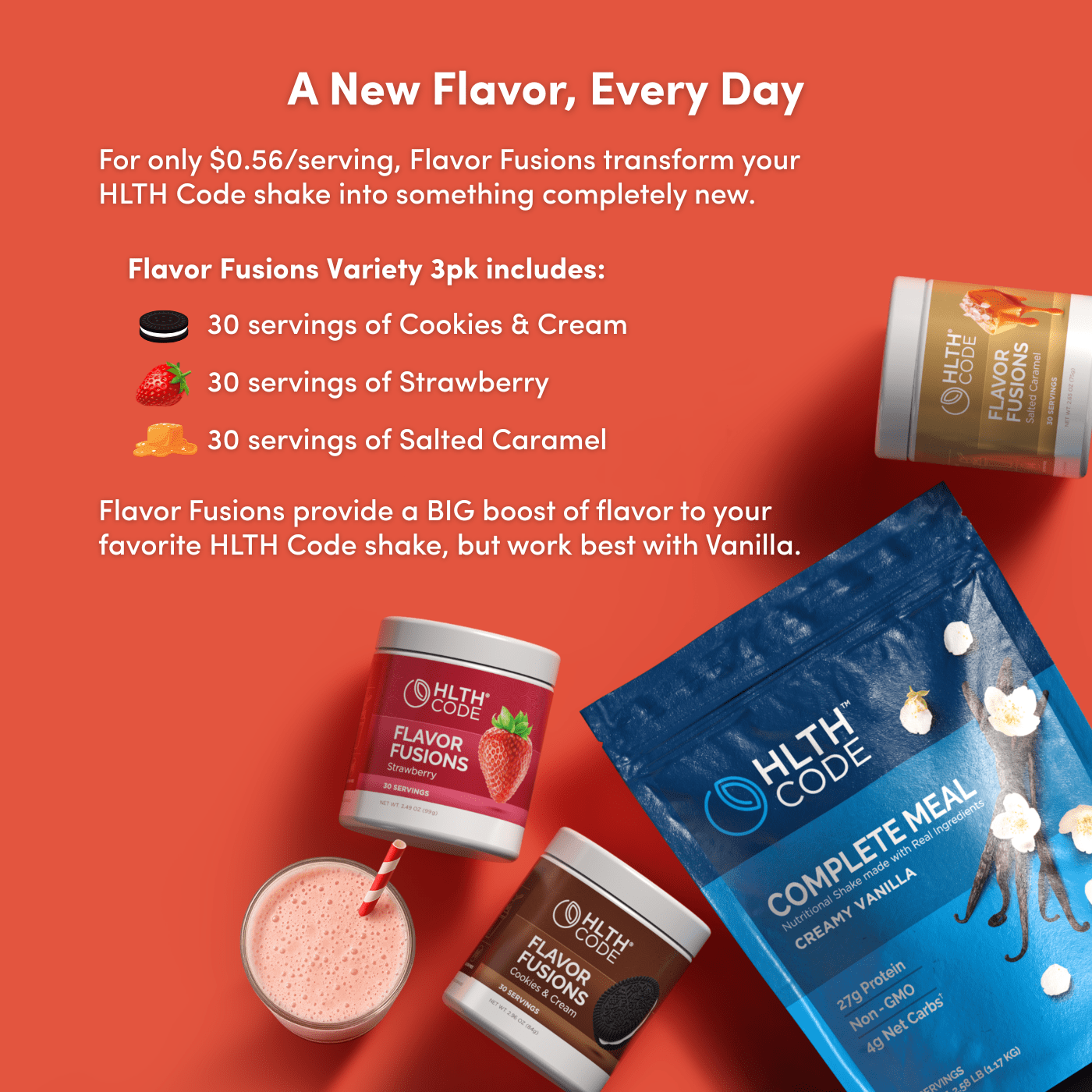Keto: ketones vs. ketogenic diet

If you’ve heard the word “ketone” before, it may have been in the context of a conversation about someone with diabetes. And rightly so—diabetes (type 1 or 2) is a problem of insulin (not glucose!), and insulin and ketones are, in a way, opposites. Or maybe it was with someone who “does the keto diet”, which keeps insulin low by cutting insulin-spiking carbs. In both situations, ketones are an inverse indicator of insulin because insulin inhibits ketone production (i.e. ketogenesis) [1, 2]. In other words, if insulin is high, ketones are low; if insulin is low, the liver breaks down fat into small pieces called ketones [1]. For this reason, a diet that keeps insulin low is referred to as a “ketogenic diet”—the low insulin levels allows the production of ketones.
A genuine value to ketones is that they provide a rough and simple indicator of insulin—if ketones are up, insulin is low. And this is worthwhile—chronically elevated insulin is a driving cause of many chronic disorders, including heart disease [3], infertility [4, 5], certain cancers [6], Alzheimer’s disease [7], and more. But ketones are more than just markers of low insulin.
Ketones are enjoying their day in the sun, but it wasn’t always this way. Ketones were once considered “metabolic garbage” because scientists were unaware of any role for them. Oh, how the times have changed! Not only are ketones recognized as a viable fuel source for almost every cell, including the brain and muscles, but they’re also important signaling molecules that have multiple beneficial effects. Some of the known benefits of ketones include increasing the number of mitochondria in the cell (where fats are broken down) [8], reducing oxidative stress [9], controlling inflammation [10], improving brain/cognitive function [11] and, in the case of some organisms (though no evidence in humans), extending lifespan [12].
It’s for these reasons that people have started selling (and buying!) supplements with ketones.
Nutritional vs. Supplemental Ketosis
With evermore evidence supporting the benefits of ketones, several companies have come to life that seek to capitalize on ketones’ new and glamorous reputation. They claim to improve one’s health by providing oral ketone supplements, and there is evidence, mentioned above, that supports the benefits of ketones. However, putting ketones in your mouth is a very different state than that created by a diet that induces ketone creation in your liver from your own fats.
Oral ketone supplements may be beneficial, but this is inarguably an artificial condition—we don’t eat ketones. We make them. Nevertheless, when you eat your ketones, you may be eating them with foods that increase insulin at the same time. Ketones and insulin are opposites—they are never high at the same time in normal physiology. It just doesn’t happen. If insulin is high, ketone production (i.e., ketogenesis) is blocked. If insulin is low, ketone production is increased.
The effects of having possibly both insulin (due to diet) and ketones (due to supplements) elevated simultaneously are unknown. But I’ll speculate. The main circulating ketone (and what is ingested with ketone supplements) is β-hydroxybutyrate, which is converted to acetoacetate and then to acetyl-coA. Acetyl-coA is at the crux of multiple important metabolic pathways dictated by the energetic state of the cell and the prevalent mix of hormones. Acetyl-coA, as mentioned, is involved in ketone formation (and use), as well as the formation (and use) of fats and, finally, it can be broken down for the production of chemical energy. When insulin and acetyl-coA are increased, insulin activates an enzyme called acetyl-coA carboxylase (ACC) [13]. ACC is a key enzyme in a process called lipogenesis—the creation of fat. So, taking oral ketones while eating a typical insulin-spiking diet may be doing more harm than good, increasing fat production in the liver.
In the end, here’s a reminder: it’s the insulin that we really care about. Ketones, in the context of insulin resistance, are mostly useful because they’re an inverse indicator of our insulin levels—they simply tell us how we’re doing keeping our insulin in check. We don’t seek high ketones as much as we seek low insulin. The fact that ketones are themselves beneficial molecules for our health is a bonus, even if a real one.
But should you be worried about ketones? If you have a functioning pancreas, you’re fine. In the near total absence of insulin (i.e. type 1 diabetes), or you’re a breastfeeding mom, the amount of ketones produced can be dangerous—a condition called “ketoacidosis”. But everyone else could avoid carbs completely (I’m not suggesting you do it) and only be in “ketosis”—a level of ketones about a tenth of what’s required for ketoacidosis.
Take-away Thoughts
In general, just let ketones be your guide to knowing how well you’re controlling your insulin levels (because ketones are easier to measure at home than blood insulin levels). Unless you suffer from a disorder that uniquely benefits from ketones (e.g., migraines, epilepsy, etc.), supplemental ketones seem mostly unnecessary, and could potentially do more harm than good if your diet isn’t controlled.
References
1 Laffel, L. (1999) Ketone bodies: a review of physiology, pathophysiology and application of monitoring to diabetes. Diabetes/metabolism research and reviews. 15, 412-426
2 Nadal, A., Marrero, P. F. and Haro, D. (2002) Down-regulation of the mitochondrial 3-hydroxy-3-methylglutaryl-CoA synthase gene by insulin: the role of the forkhead transcription factor FKHRL1. The Biochemical journal. 366, 289-297
3 Montgomery, B. J. (1979) High plasma insulin level a prime risk factor for heart disease. JAMA : the journal of the American Medical Association. 241, 1665
4 Saxena, P., Prakash, A. and Nigam, A. (2011) Efficacy of 2-hour post glucose insulin levels in predicting insulin resistance in polycystic ovarian syndrome with infertility. J Hum Reprod Sci. 4, 20-22
5 Yao, F., Liu, L., Zhang, Y., Huang, Y., Liu, D., Lin, H., Liu, Y., Fan, R., Li, C. and Deng, C. (2013) Erectile dysfunction may be the first clinical sign of insulin resistance and endothelial dysfunction in young men. Clin Res Cardiol. 102, 645-651
6 Pichard, C., Plu-Bureau, G., Neves, E. C. M. and Gompel, A. (2008) Insulin resistance, obesity and breast cancer risk. Maturitas. 60, 19-30
7 Kuusisto, J., Koivisto, K., Mykkanen, L., Helkala, E. L., Vanhanen, M., Hanninen, T., Kervinen, K., Kesaniemi, Y. A., Riekkinen, P. J. and Laakso, M. (1997) Association between features of the insulin resistance syndrome and Alzheimer’s disease independently of apolipoprotein E4 phenotype: cross sectional population based study. BMJ. 315, 1045-1049
8 Bough, K. J., Wetherington, J., Hassel, B., Pare, J. F., Gawryluk, J. W., Greene, J. G., Shaw, R., Smith, Y., Geiger, J. D. and Dingledine, R. J. (2006) Mitochondrial biogenesis in the anticonvulsant mechanism of the ketogenic diet. Annals of neurology. 60, 223-235
9 Kim, D. Y., Davis, L. M., Sullivan, P. G., Maalouf, M., Simeone, T. A., van Brederode, J. and Rho, J. M. (2007) Ketone bodies are protective against oxidative stress in neocortical neurons. Journal of neurochemistry. 101, 1316-1326
10 Youm, Y. H., Nguyen, K. Y., Grant, R. W., Goldberg, E. L., Bodogai, M., Kim, D., D’Agostino, D., Planavsky, N., Lupfer, C., Kanneganti, T. D., Kang, S., Horvath, T. L., Fahmy, T. M., Crawford, P. A., Biragyn, A., Alnemri, E. and Dixit, V. D. (2015) The ketone metabolite beta-hydroxybutyrate blocks NLRP3 inflammasome-mediated inflammatory disease. Nature medicine. 21, 263-269
11 Henderson, S. T., Vogel, J. L., Barr, L. J., Garvin, F., Jones, J. J. and Costantini, L. C. (2009) Study of the ketogenic agent AC-1202 in mild to moderate Alzheimer’s disease: a randomized, double-blind, placebo-controlled, multicenter trial. Nutrition & metabolism. 6, 31
12 Edwards, C., Copes, N. and Bradshaw, P. C. (2015) D-ss-hydroxybutyrate: an anti-aging ketone body. Oncotarget. 6, 3477-3478
13 Witters, L. A., Moriarity, D. and Martin, D. B. (1979) Regulation of hepatic acetyl coenzyme A carboxylase by insulin and glucagon. The Journal of biological chemistry. 254, 6644-6649
This article is for informational and educational purposes only. It is not, nor is it intended to be substitute for professional medical advice, diagnosis, or treatment and should never be relied upon for specific medical advice.



















